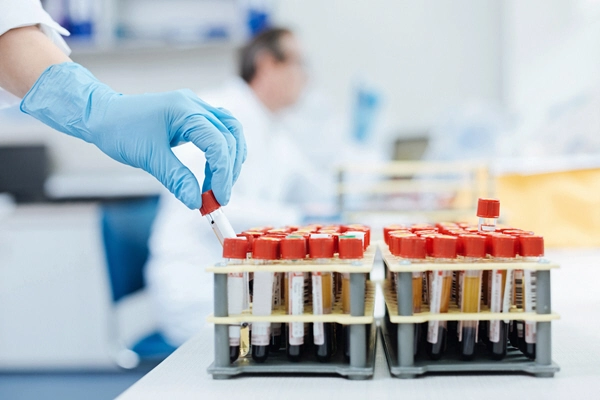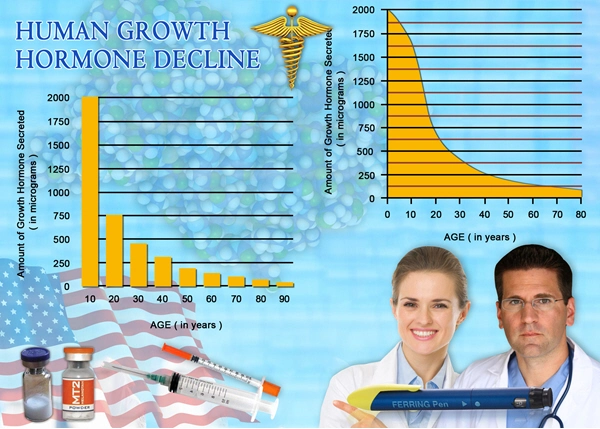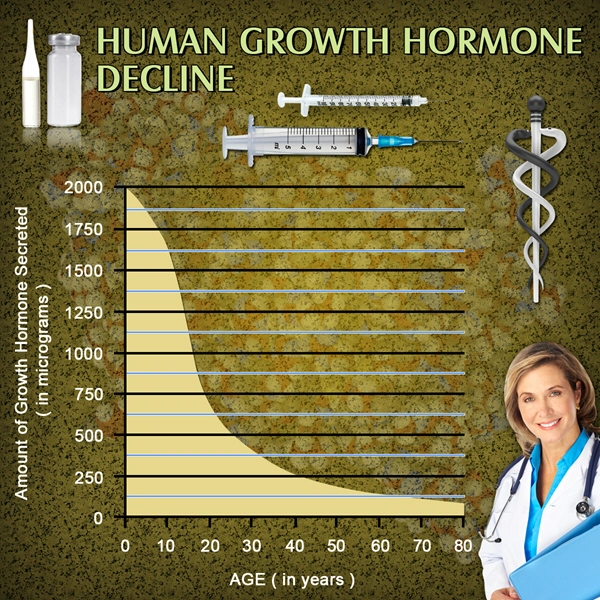Introduction
Primary hypogonadism, a condition characterized by the failure of the testes to produce adequate levels of testosterone, has been increasingly recognized as a significant health concern among American men. Recent research has begun to explore the broader implications of this condition, particularly its potential influence on metabolic health. A recent cross-sectional study involving over 5,000 cases has shed light on the relationship between primary hypogonadism, blood sugar levels, and the risk of developing diabetes. This article delves into the findings of this study, offering valuable insights for healthcare professionals and patients alike.
Study Overview and Methodology
The study in question analyzed data from a diverse cohort of over 5,000 American males diagnosed with primary hypogonadism. Researchers collected comprehensive medical histories, including blood sugar levels and diabetes status, to assess the impact of hypogonadism on metabolic health. The use of a large sample size and a cross-sectional approach allowed for a robust analysis of the associations between testosterone levels, glycemic control, and diabetes risk.
Findings on Blood Sugar Levels
One of the key findings from the study was a significant correlation between low testosterone levels and elevated blood sugar levels. Men with primary hypogonadism were found to have higher fasting glucose and HbA1c levels compared to their counterparts with normal testosterone levels. This suggests that primary hypogonadism may contribute to impaired glycemic control, a critical factor in the development of diabetes.
Diabetes Risk and Primary Hypogonadism
The study also revealed a notable increase in the risk of developing type 2 diabetes among men with primary hypogonadism. After adjusting for confounding factors such as age, body mass index, and lifestyle habits, the data indicated that men with low testosterone levels were at a significantly higher risk of diabetes. This finding underscores the importance of monitoring and managing testosterone levels as part of a comprehensive approach to diabetes prevention and management.
Potential Mechanisms
Several potential mechanisms may explain the link between primary hypogonadism and increased diabetes risk. Testosterone is known to influence insulin sensitivity and glucose metabolism, and its deficiency may lead to insulin resistance, a precursor to type 2 diabetes. Additionally, low testosterone levels have been associated with increased visceral fat accumulation, further exacerbating metabolic dysfunction. These insights highlight the need for further research into the biological pathways connecting hypogonadism and diabetes.
Clinical Implications
The findings of this study have significant clinical implications for the management of primary hypogonadism in American men. Healthcare providers should consider screening for diabetes and monitoring blood sugar levels in patients with low testosterone. Furthermore, testosterone replacement therapy (TRT) may offer a dual benefit by addressing hypogonadism and potentially improving glycemic control. However, the decision to initiate TRT should be made on a case-by-case basis, taking into account the patient's overall health and risk factors.
Conclusion
The cross-sectional study involving over 5,000 American males has provided compelling evidence of the link between primary hypogonadism, elevated blood sugar levels, and increased diabetes risk. These findings emphasize the importance of recognizing and addressing hypogonadism as part of a comprehensive approach to metabolic health. As research continues to unravel the complex interplay between testosterone and diabetes, healthcare professionals must remain vigilant in screening and managing this condition to improve patient outcomes.
Future Directions
Future research should focus on longitudinal studies to further elucidate the causal relationship between primary hypogonadism and diabetes. Additionally, investigating the efficacy and safety of testosterone replacement therapy in preventing or managing diabetes in hypogonadal men will be crucial. By expanding our understanding of these connections, we can develop more targeted and effective interventions to improve the health and well-being of American men with primary hypogonadism.

- Primary Hypogonadism: Overcoming Stigma and Enhancing Men's Health in America [Last Updated On: February 22nd, 2025] [Originally Added On: February 22nd, 2025]
- Exercise Regimen Boosts Testosterone in American Males with Primary Hypogonadism [Last Updated On: March 17th, 2025] [Originally Added On: March 17th, 2025]
- Primary Hypogonadism in Aging American Men: Symptoms, Impacts, and Management Strategies [Last Updated On: March 17th, 2025] [Originally Added On: March 17th, 2025]
- Innovative Therapies and Lifestyle Interventions for Primary Hypogonadism in American Males [Last Updated On: March 19th, 2025] [Originally Added On: March 19th, 2025]
- Primary Hypogonadism: Symptoms, Diagnosis, and Treatment Options for American Men [Last Updated On: March 19th, 2025] [Originally Added On: March 19th, 2025]
- Primary Hypogonadism: Understanding, Managing, and Supporting Affected American Men [Last Updated On: March 19th, 2025] [Originally Added On: March 19th, 2025]
- Primary Hypogonadism: Impact on Work and Strategies for American Men's Productivity [Last Updated On: March 20th, 2025] [Originally Added On: March 20th, 2025]
- Emotional Journey of American Males with Primary Hypogonadism: From Diagnosis to Acceptance [Last Updated On: March 20th, 2025] [Originally Added On: March 20th, 2025]
- Managing Primary Hypogonadism: Diet, Nutrition, and Lifestyle Strategies for American Males [Last Updated On: March 20th, 2025] [Originally Added On: March 20th, 2025]
- Primary Hypogonadism and Obesity Link in American Males: Causes, Impacts, and Management [Last Updated On: March 21st, 2025] [Originally Added On: March 21st, 2025]
- Primary Hypogonadism in American Men: Support Networks and Psychological Impact [Last Updated On: March 21st, 2025] [Originally Added On: March 21st, 2025]
- Primary Hypogonadism and Diabetes: Dual Health Challenge for American Men [Last Updated On: March 22nd, 2025] [Originally Added On: March 22nd, 2025]
- Managing Primary Hypogonadism: Navigating Diagnosis, Treatment, and Support in the US [Last Updated On: March 22nd, 2025] [Originally Added On: March 22nd, 2025]
- Diagnosing Primary Hypogonadism in American Males: Challenges and Advances [Last Updated On: March 23rd, 2025] [Originally Added On: March 23rd, 2025]
- Managing Primary Hypogonadism: Symptoms, Diagnosis, and Treatment Options for American Men [Last Updated On: March 23rd, 2025] [Originally Added On: March 23rd, 2025]
- Managing Primary Hypogonadism: Education and Treatment for American Males [Last Updated On: March 23rd, 2025] [Originally Added On: March 23rd, 2025]
- Primary Hypogonadism: Understanding Emotional Impact and Holistic Management Strategies [Last Updated On: March 23rd, 2025] [Originally Added On: March 23rd, 2025]
- Primary Hypogonadism's Impact on Muscle Mass in American Males: Causes and Therapies [Last Updated On: March 24th, 2025] [Originally Added On: March 24th, 2025]
- American Males' Resilience in Managing Primary Hypogonadism: Stories and Strategies [Last Updated On: March 24th, 2025] [Originally Added On: March 24th, 2025]
- Primary Hypogonadism: Mental Health's Crucial Role in Holistic Care for American Men [Last Updated On: March 24th, 2025] [Originally Added On: March 24th, 2025]
- Innovative Therapies and Personalized Approaches Transforming Primary Hypogonadism Treatment in American Males [Last Updated On: March 24th, 2025] [Originally Added On: March 24th, 2025]
- Community Support Enhances Management of Primary Hypogonadism in American Men [Last Updated On: March 25th, 2025] [Originally Added On: March 25th, 2025]
- Primary Hypogonadism in American Men: TRT's Role and Holistic Management [Last Updated On: March 25th, 2025] [Originally Added On: March 25th, 2025]
- Primary Hypogonadism in American Men: Symptoms, Causes, and Holistic Management [Last Updated On: March 25th, 2025] [Originally Added On: March 25th, 2025]
- Genetic Testing for Primary Hypogonadism: Diagnosis and Management in American Males [Last Updated On: March 25th, 2025] [Originally Added On: March 25th, 2025]
- Primary Hypogonadism's Impact on Sleep: Diagnosis, Treatment, and Lifestyle Management [Last Updated On: March 25th, 2025] [Originally Added On: March 25th, 2025]
- Managing Primary Hypogonadism: Symptoms, Diagnosis, and Healthcare Navigation in the US [Last Updated On: March 25th, 2025] [Originally Added On: March 25th, 2025]
- Primary Hypogonadism: Impact, Advocacy, and Research Needs for American Men [Last Updated On: March 25th, 2025] [Originally Added On: March 25th, 2025]
- Primary Hypogonadism: Impact on Body Image and Management Strategies for American Men [Last Updated On: March 25th, 2025] [Originally Added On: March 25th, 2025]
- Primary Hypogonadism: Family Support's Crucial Role in American Males' Well-being [Last Updated On: March 25th, 2025] [Originally Added On: March 25th, 2025]
- Primary Hypogonadism: Causes, Symptoms, and Early Intervention for American Men [Last Updated On: March 25th, 2025] [Originally Added On: March 25th, 2025]
- Primary Hypogonadism Management: Importance of Regular Check-ups for American Males [Last Updated On: March 25th, 2025] [Originally Added On: March 25th, 2025]
- Financial Burdens of Primary Hypogonadism: Costs, Insurance, and Coping Strategies for American Men [Last Updated On: March 25th, 2025] [Originally Added On: March 25th, 2025]
- Primary Hypogonadism in American Males: Diagnosis, Treatment, and Management Strategies [Last Updated On: March 25th, 2025] [Originally Added On: March 25th, 2025]
- Primary Hypogonadism: Causes, Symptoms, and Treatment in American Men [Last Updated On: March 26th, 2025] [Originally Added On: March 26th, 2025]
- Primary Hypogonadism: Diagnosis, Specialists, and Management for American Men [Last Updated On: March 26th, 2025] [Originally Added On: March 26th, 2025]
- Primary Hypogonadism: Impacts on American Men's Social Life and Health [Last Updated On: March 26th, 2025] [Originally Added On: March 26th, 2025]
- Primary Hypogonadism in American Men: Diagnosis, Impact, and Management Strategies [Last Updated On: March 27th, 2025] [Originally Added On: March 27th, 2025]
- Nutritionists' Vital Role in Managing Primary Hypogonadism in American Males [Last Updated On: March 27th, 2025] [Originally Added On: March 27th, 2025]
- Exercise Physiologists' Role in Managing Primary Hypogonadism in American Males [Last Updated On: March 27th, 2025] [Originally Added On: March 27th, 2025]
- Understanding Primary Hypogonadism: Symptoms, Diagnosis, and Treatment Options [Last Updated On: March 27th, 2025] [Originally Added On: March 27th, 2025]
- Primary Hypogonadism: Impacts, Diagnosis, and Management in American Males [Last Updated On: March 27th, 2025] [Originally Added On: March 27th, 2025]
- Primary Hypogonadism: Impacts and Strategies for Career Success in American Males [Last Updated On: March 27th, 2025] [Originally Added On: March 27th, 2025]
- Primary Hypogonadism's Impact on Physical Activity in American Males: Challenges and Strategies [Last Updated On: March 27th, 2025] [Originally Added On: March 27th, 2025]
- Primary Hypogonadism in American Men: The Vital Role of Peer Support [Last Updated On: March 27th, 2025] [Originally Added On: March 27th, 2025]
- Primary Hypogonadism: Variability in Symptoms and Impact on American Men's Health [Last Updated On: March 28th, 2025] [Originally Added On: March 28th, 2025]
- Primary Hypogonadism in American Men: Diagnosis, Treatment, and Management Strategies [Last Updated On: March 28th, 2025] [Originally Added On: March 28th, 2025]
- Primary Hypogonadism's Impact on Self-Esteem in American Males: A Holistic Approach [Last Updated On: March 29th, 2025] [Originally Added On: March 29th, 2025]
- Primary Hypogonadism: Understanding Treatments and Managing Side Effects in American Males [Last Updated On: March 29th, 2025] [Originally Added On: March 29th, 2025]
- Primary Hypogonadism: Addressing Emotional Challenges in American Men [Last Updated On: March 30th, 2025] [Originally Added On: March 30th, 2025]
- Primary Hypogonadism: Impact, Monitoring, and Management Strategies for American Men [Last Updated On: March 30th, 2025] [Originally Added On: March 30th, 2025]
- Primary Hypogonadism: Impacts and Options for Family Planning in American Males [Last Updated On: April 1st, 2025] [Originally Added On: April 1st, 2025]
- Primary Hypogonadism: Managing Stress and Anxiety in American Men [Last Updated On: April 2nd, 2025] [Originally Added On: April 2nd, 2025]
- Primary Hypogonadism in American Men: Diagnosis, Treatment, and Lifestyle Management [Last Updated On: April 4th, 2025] [Originally Added On: April 4th, 2025]
- Overcoming Psychological Barriers to Treating Primary Hypogonadism in American Men [Last Updated On: April 4th, 2025] [Originally Added On: April 4th, 2025]
- Endocrinologists' Vital Role in Managing Primary Hypogonadism in American Males [Last Updated On: April 5th, 2025] [Originally Added On: April 5th, 2025]
- Managing Primary Hypogonadism: Financial Strategies and Support Options for American Men [Last Updated On: April 6th, 2025] [Originally Added On: April 6th, 2025]
- Revolutionizing Primary Hypogonadism Management with Wearable Tech and Telemedicine in American Men [Last Updated On: April 7th, 2025] [Originally Added On: April 7th, 2025]
- Managing Primary Hypogonadism: Diagnosis, Treatment, and Lifestyle Strategies for American Men [Last Updated On: April 8th, 2025] [Originally Added On: April 8th, 2025]
- Primary Hypogonadism: Impacts on Social Life and Relationships in American Males [Last Updated On: April 8th, 2025] [Originally Added On: April 8th, 2025]
- Primary Hypogonadism: Impacts on Health, Psychology, and Daily Life in American Males [Last Updated On: April 9th, 2025] [Originally Added On: April 9th, 2025]
- Primary Hypogonadism: Challenges and Strategies for Treatment Adherence in American Males [Last Updated On: April 9th, 2025] [Originally Added On: April 9th, 2025]
- Primary Hypogonadism: Educating American Males on Symptoms, Treatment, and Lifestyle Management [Last Updated On: April 10th, 2025] [Originally Added On: April 10th, 2025]
- Support Groups: Vital for Managing Primary Hypogonadism in American Males [Last Updated On: April 10th, 2025] [Originally Added On: April 10th, 2025]
- Primary Hypogonadism: A Multidisciplinary Approach for American Men's Health [Last Updated On: April 10th, 2025] [Originally Added On: April 10th, 2025]
- Managing Primary Hypogonadism: Diagnosis, Treatment, and Maintaining a Positive Outlook for American Men [Last Updated On: April 11th, 2025] [Originally Added On: April 11th, 2025]
- Mental Health Apps: A New Hope for American Males with Primary Hypogonadism [Last Updated On: April 12th, 2025] [Originally Added On: April 12th, 2025]
- Primary Hypogonadism: Understanding, Treatments, and Future Hope for American Men [Last Updated On: April 14th, 2025] [Originally Added On: April 14th, 2025]
- Managing Primary Hypogonadism: Importance of Regular Follow-ups for American Men [Last Updated On: April 15th, 2025] [Originally Added On: April 15th, 2025]
- Primary Hypogonadism Management: Multidisciplinary Team Approach for American Men [Last Updated On: April 15th, 2025] [Originally Added On: April 15th, 2025]
- Primary Hypogonadism: Navigating Workplace Challenges and Advocacy for American Men [Last Updated On: April 16th, 2025] [Originally Added On: April 16th, 2025]
- Physical Therapy's Role in Managing Primary Hypogonadism in American Males [Last Updated On: April 18th, 2025] [Originally Added On: April 18th, 2025]
- Dietitians' Role in Managing Primary Hypogonadism Through Tailored Nutrition Plans [Last Updated On: April 18th, 2025] [Originally Added On: April 18th, 2025]
- Primary Hypogonadism: Navigating Travel Challenges for American Males [Last Updated On: April 18th, 2025] [Originally Added On: April 18th, 2025]
- Primary Hypogonadism's Impact on Cognitive Function and Academic Success in American Males [Last Updated On: April 18th, 2025] [Originally Added On: April 18th, 2025]
- Preparing for Primary Hypogonadism Diagnosis: A Guide for American Men [Last Updated On: April 19th, 2025] [Originally Added On: April 19th, 2025]
- Primary Hypogonadism's Impact on American Men's Hobbies and Social Life [Last Updated On: April 19th, 2025] [Originally Added On: April 19th, 2025]
- Primary Hypogonadism in American Men: Diagnosis, Treatment, and Lifestyle Impact [Last Updated On: April 19th, 2025] [Originally Added On: April 19th, 2025]
- Five-Year Study Confirms Efficacy and Safety of HRT for Primary Hypogonadism in American Men [Last Updated On: April 22nd, 2025] [Originally Added On: April 22nd, 2025]
- Managing Primary Hypogonadism: Exercise Benefits for American Men's Health [Last Updated On: April 22nd, 2025] [Originally Added On: April 22nd, 2025]



List of USA state clinics - click a flag below for blood testing clinics.
Word Count: 596


















































